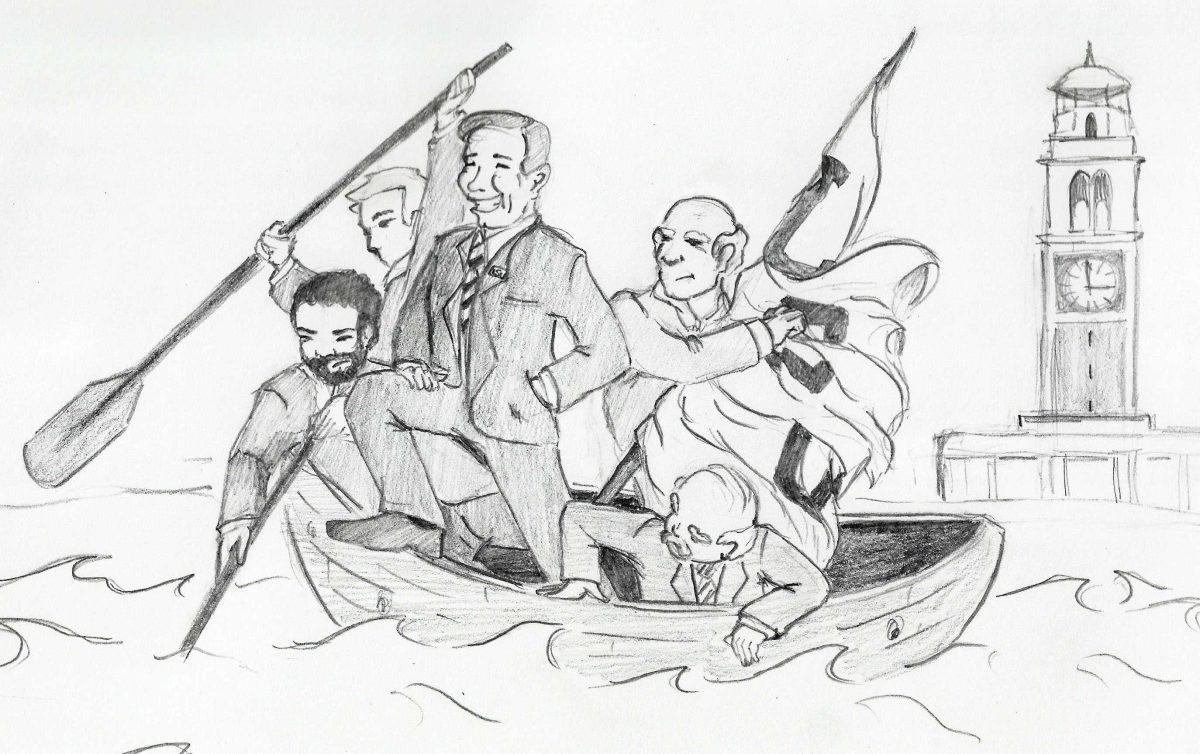At the time of the revolution, the United States consisted of just 13 original colonies spread across the Atlantic Seaboard. Almost 238 years later, it now spans the North American continent, having an estimated area of 3.794 million square miles with a population of approximately 313.9 million and counting.
The University, much like the U.S., covers a large area, boasts a diverse array of students and faculty who provide a litany of courses from the mundane to the profound, and our administration is intent on even more growth.
The large size is an inherently good thing for both the United States and the University. Perhaps the most obvious advantage is the abundance of resources at our disposal. For LSU, this comes in the form of more funding from state appropriations, tuition, fees and endowments. For the U.S., it is our natural resources and boundaries.
Being the state’s flagship university, LSU is afforded the ability to bring the best to bear for our education. Be it cutting edge research or new-and-improved facilities, the University can continually improve upon itself because of its consistently high student enrollment. When potential donors see LSU is on the rise, they are more inclined to help fund our growth.
While some may argue that a 900-student class is ridiculous, I would counter that you should not expect close interaction with a professor teaching an easy-A, general education course you’ve probably attended once because it was your day to push buttons on all of your friends’ clickers.
Owning most of a continent has its perks. The United States is blessed with huge reserves of coal, natural gas, shale oil and is the largest global exporter of wheat. In addition, the U.S. has the highest GDP of any single nation-state in the world, the sixth highest GDP per capita, and as of 2011, the United States accounted for 22 percent of all global economic activity.
Apart from the production benefits, the size of the United States provides certain defensive advantages. We share our borders with just two foreign powers, and we have only been at war with Mexico. At the time of the War of 1812, Canada was still a British colonial possession, so technically we have never taken up arms against our northern neighbors. Manifest Destiny has paid countless dividends in terms of our national security.
One would think that the sheer scale of the country would present issues with governance. That would be true, were we still living in the 18th century. Living in an age of instant communications, President Barack Obama can golf as much as he wants and press the nuclear button from the 18th green, should he need to.
As far as our population goes, it is a blessing to have so many citizens, and that number is on the rise — although admittedly, our growth rate is the lowest it has been since the Great Depression. There is always a need for more participants in the labor force, and according to a study by Georgetown University, there will be a labor shortage of roughly 5 million educated workers by 2020.
Plus, if voters are insistent on keeping that most sacred entitlement program, Social Security, as is, a large working population is needed to keep the program afloat. If there were less people to pay into the Social Security Trust Fund, it would rapidly become insolvent.
And despite talk of partisan gridlock, the federal government was designed by the founders from the ground up to be slow and inefficient. That is a safeguard from tyranny, not a symptom of scale.
To say that the United States or LSU is too large ignores the benefits our size gives us. Certainly, we are plagued with lousy administrators from time to time, but to fault our size for the incompetence of man is farcical.
Ryan McGehee is a 21-year-old political science, history, and international studies major from Zachary.
Opinion: Yes. Growth is beneficial for U.S. and LSU.
February 24, 2014





